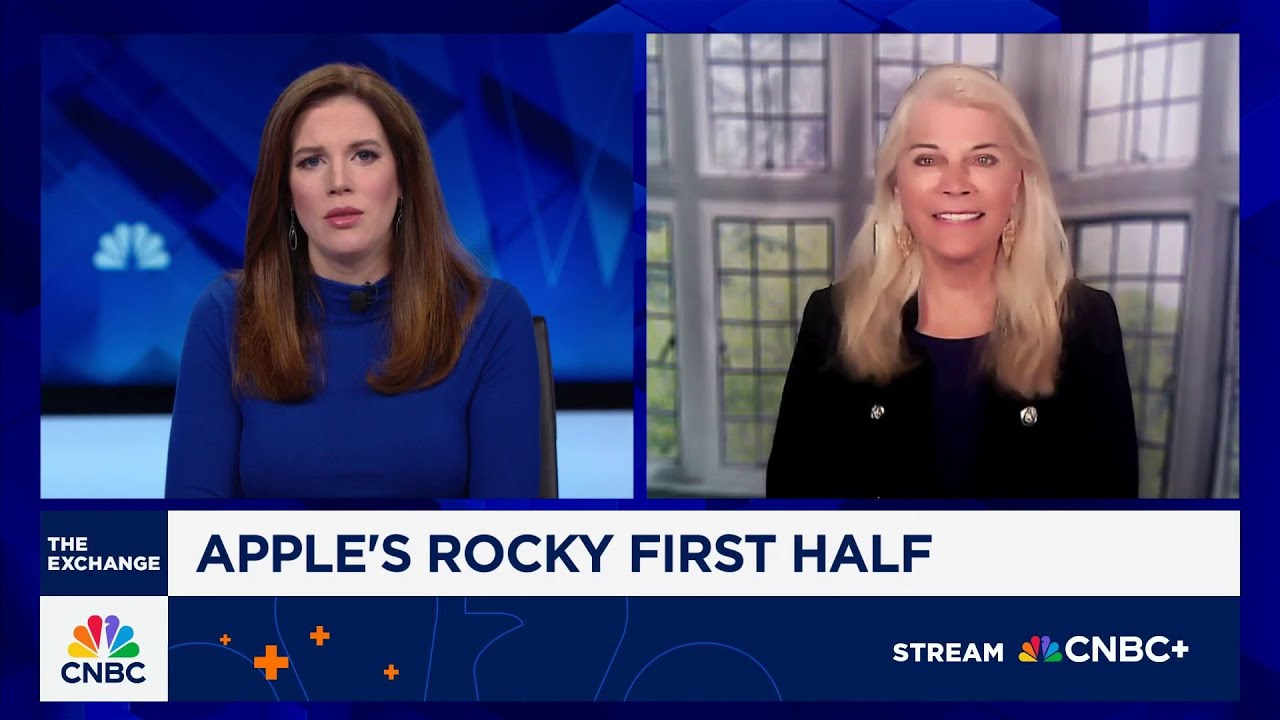Laura Martin from Needham warns that Apple is falling behind in AI development and must partner with external AI companies like OpenAI or Anthropic to upgrade Siri and stay competitive. She highlights the risks of Apple’s heavy reliance on iPhone sales amid growing Android advancements powered by Google’s AI, urging urgent action to avoid losing market dominance in the coming years.
In the CNBC discussion, Laura Martin, a senior media and internet analyst at Needham, highlights Apple’s current struggles in the artificial intelligence (AI) space, noting that the company’s stock has declined by 17% so far this year. Apple is reportedly considering partnering with external AI companies like OpenAI or Anthropic to upgrade Siri, which Martin views as a necessary acknowledgment of the company’s lagging position in generative AI development. She emphasizes that Apple cannot rely solely on internal efforts to catch up and must leverage outside expertise to accelerate its AI capabilities.
Martin contrasts Apple’s approach with that of Meta, which is investing heavily—spending around $100 million—to attract top talent in generative AI. She doubts Apple will match such internal hiring efforts, making collaboration with third-party AI developers essential for Apple to remain competitive. This strategy, according to Martin, is critical for Apple to enhance its AI product development and avoid falling further behind in the rapidly evolving tech landscape.
The conversation also touches on the current drivers of Apple’s stock performance, which remain heavily dependent on iPhone sales. While iPhone sales continue to be strong, Martin warns that this reliance is risky in the long term. She points out that Android devices, backed by Google’s Gemini large language model, are increasingly integrating generative AI features, which could give Android a significant advantage over Apple in the coming years. This trend threatens Apple’s ecosystem and business model if iPhone sales begin to decline.
Despite the competitive pressure, many iPhone users remain loyal to Apple’s ecosystem, often citing familiarity and perceived privacy protections as reasons for sticking with the brand. Martin acknowledges this loyalty but cautions that it may not last indefinitely. If Android continues to innovate and Apple fails to keep pace, consumers may eventually switch ecosystems, which would have serious implications for Apple’s market position.
In conclusion, Martin stresses that Apple’s AI challenge is not just a short-term issue but a multi-year problem that requires urgent action. She advocates for Apple to aggressively pursue partnerships with external AI firms to narrow the innovation gap and maintain its competitive edge. Without such efforts, Apple risks losing its dominance in the smartphone market and the broader tech ecosystem over the next five years.
